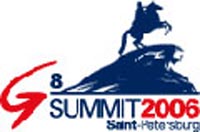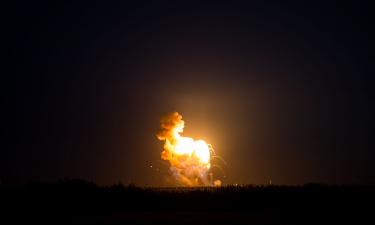G-8 leaders concentrate on problems of Middle East
The leaders of major industrialized countries - the United States,Russia, Japan, Germany, Britain, France, Italy and Canada - were holding final sessions with the leaders of five fast-growing economies: India, China, Brazil, South Africa and Mexico.

Those talks were expected to focus on more traditional summit fare, such as restarting stalled global trade talks and implementing a major debt relief program for the world's poorest nations that was announced at last year's summit. Pascal Lamy, head of the World Trade Organization, was expected to attend.
The G-8 leaders struggled Sunday to come up with a unified position on how to deal with the escalating violence between Israel and Hezbollah guerrillas in Lebanon, as well as the Israeli-Palestinian conflict.
The leaders' statement said extremist groups cannot be allowed to plunge the Middle East into violence while also urging Israel to exercise restraint in its military campaign, acording to the AP.
The statement was a compromise between a U.S. position strongly supporting Israel's right to defend itself against terrorist attacks and the views of other G-8 countries that Israel was engaging in excessive force.
The path toward a compromise opened Sunday when Bush pressed Israel to show moderation. Bush said his message for Israel was "defend yourself, but as you do so, be mindful of the consequences. And so we've urged restraint."
The wording of the G-8 statement allowed differing interpretations. French President Jacques Chirac said it was evident from the statement that the G-8 was calling for a cease-fire on both sides of the conflict. "We all said it," Chirac insisted.
But Nicholas Burns, U.S. undersecretary of state for political affairs, disagreed. "There was no push by any country for a cease-fire," he said.
The Bush administration insisted the call for halting Israeli airstrikes was conditioned on Hezbollah releasing captured Israeli soldiers and ending missile attacks on Israel, although the statement was not clear on these points.
The U.S. view was supported by German Chancellor Angela Merkel. "First of all, that the Israeli soldiers must be returned unharmed, that the attacks on Israel must stop and that then, of course, also the Israeli military action must be ended," she said.
Putin said the declaration contained "compromise formulations that in my mind are quite balanced" and said he and British Prime Minister Tony Blair had led the effort to find common ground in talks with other G-8 leaders Sunday.
Putin had hoped this year's summit, the first held in Russia since the country became a member of the G-8 in 1998, would showcase his country's economic rebound following a devastating economic collapse in 1998.
Subscribe to Pravda.Ru Telegram channel, Facebook, RSS!




